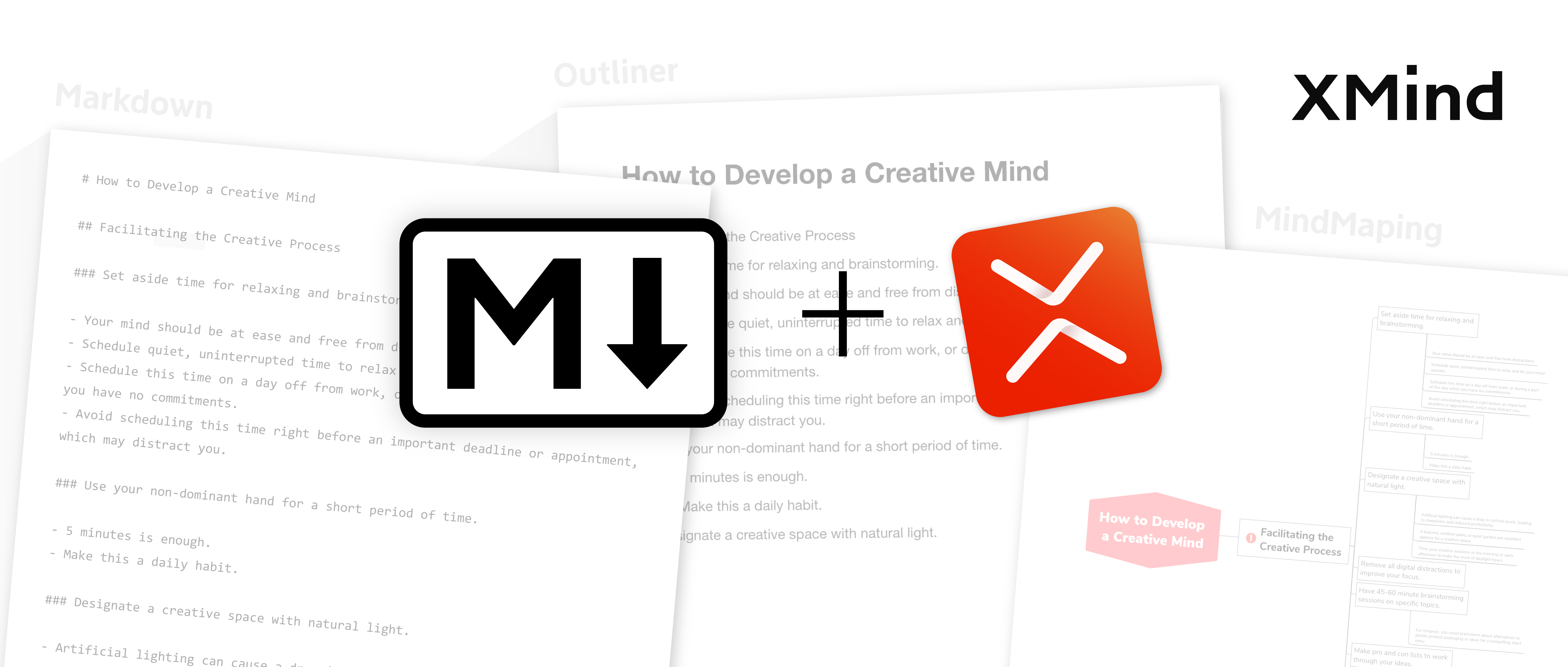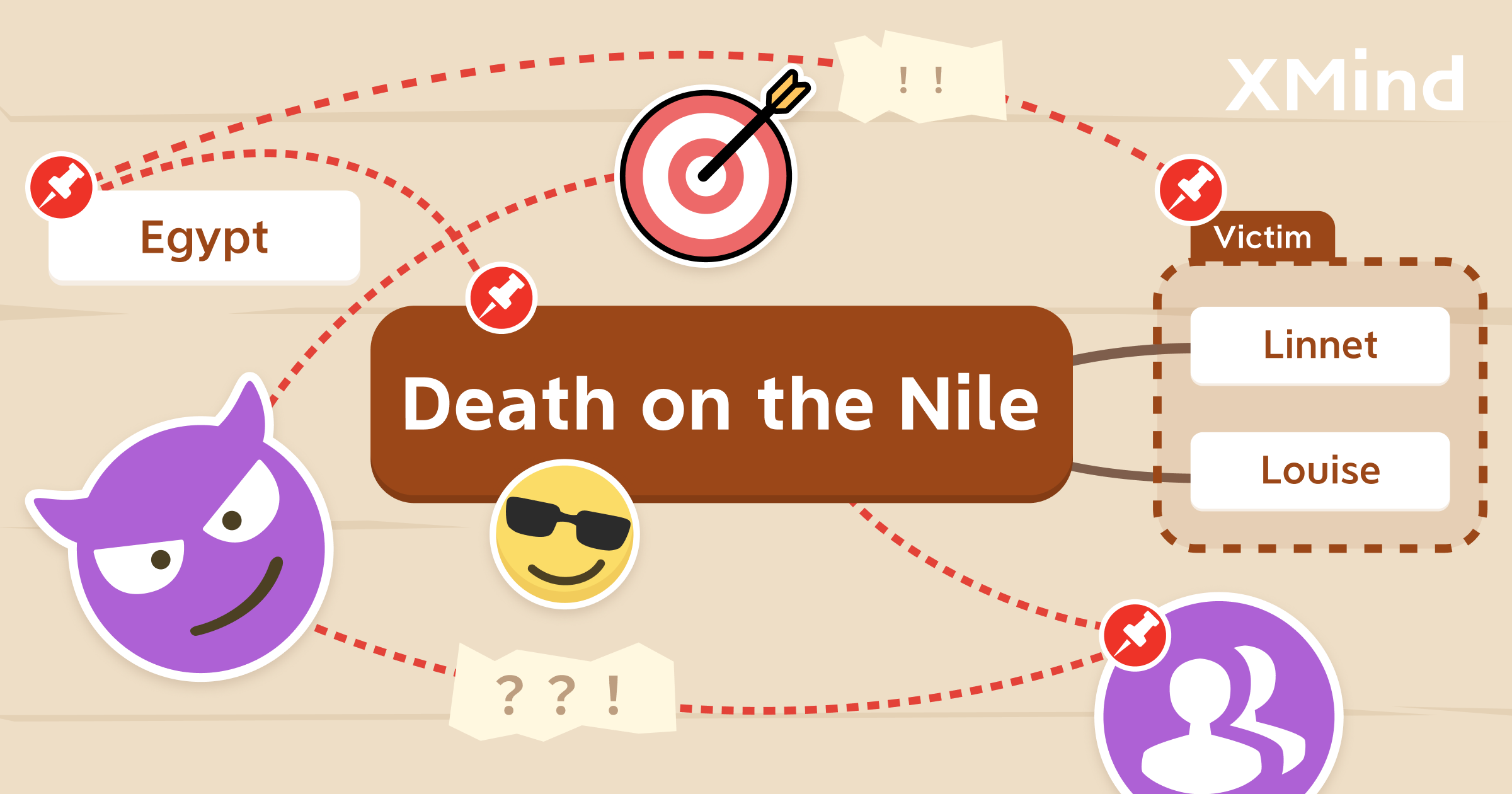Aug 1, 2020
A Markdown Plus XMind Workflow for Writing

Aug 1, 2020
A Markdown Plus XMind Workflow for Writing

Markdown is known as a lightweight markup language with plain text formatting syntax. Unlike Word or Pages which includes typesettings, and font settings, Markdown is all about plain text.
It’s popular in XMind, from the product team, R&D team to the marketing team. It is immersive to read and write, and brings us efficiency. Today, we talk about how to integrate Markdown and XMind for an efficient writing workflow.
What is Markdown
Markdown is a lightweight markup language that you can use to add formatting elements to plain text documents. It was created by John Gruber in 2004, and is now one of the world’s most popular markup languages.
Why Markdown
Read, Write and Edit Anywhere
You can create Markdown-formatted text on any operating system and Markdown editing application. Even if the previous Markdown application is uninstalled, you can import your Markdown files into another Markdown application, and keep working on it.
Same Layout Inside Out
Besides running on different systems, and Markdown editing application, Markdown also ensures the coherent layout.
Save Once and Forever
Markdown-formatted files can be preserved indefinitely. Files such as books, theses, milestone documents, etc. are good to be saved in Markdown format.
Easy to Use and Set Hands Free
Markdown helps you to write and adjust the display simply on the keyboard. It won’e take long to learn the Markdown syntax, and you can write using Markdown for almost everything, notes, blog, website, or even a to-do list.
Who is using Markdown
Emmmm, that’s a big question. As long as you are playing with texts, Markdown is a good option.
Since it was designed for websites, lots of programmers are using it. For students, Markdown allows them to take notes easily. Bloggers and authors also use it to write blogs and books. If we count in email, documentation, to-do lists, well, almost everyone can use Markdown.
Basic Markdown Syntax
Headings

Blockquote

Emphasis

List
- Ordered List

- Unordered List

Insert
- Link

- Image

In case you forget it, we’ve got this:

Integrate Markdown and XMind
Knowing What You Are Writing
Before writing, an article framework of center idea, main points, and contents helps you to write smoothly.
If you are feeling clueless, brainstorming is a solution for solving this problem. Scatter as many ideas as you have in floating topics in XMind. Based on this mind map, diverge or try to find connections between them. During this process, you might have new inspiration.
If you are filled with ideas, but find it hard to figure out the connection, XMind is also capable for this. Write down the central idea, then fill in other topics with more ideas. Drag and drop topics to till all the connections are valid. You will surprisingly find this mind map becomes the framework, and you can use it to trace the writing process.

Mind map is helpful for sorting out the ideas, while an outline is also a good option before writing starts. Outliner allows you to read your mind map like a list, and you can switch between mind maps and outline with a click. The linear view allows you to go smoothly

Time for the Markdown
XMind supports Markdown export. When the framework/outline is done, you can export it to Markdown format, and continue the writing process in Markdown editing application. The seamless writing experience allows you to keep staying on the right track effortlessly.

Markdown Editors Out There
A LOT! Typora, Ulysses, Bear, Visual Studio Code, etc. Different editors emerge to fill specific niches, and you can find the one for you. Pick one below :)

References:
https://daringfireball.net/projects/markdown/syntax
https://www.markdownguide.org/basic-syntax/#blockquotes-1
More Posts
How to Create a Flowchart in XMind (2022) | Tutorial Videos
A compilation of tutorial videos on mind mapping techniques, tricks, and tips. Find in this post how to build a flowchart using shapes and the relationship feature in XMind.

How to Read a Detective Fiction: The Ultimate Guide with XMind
Enjoy reading detective stories with XMind and master these practical tips and tricks for both desktop and mobile.

Create and Organize Recipes With Mind Maps and Tree Table Templates
Using this free tree table template on the newest version of XMind you can create your own recipe, or document your favorite dishes for future tasty journeys in the kitchen!


One space for all your ideas
Organize thoughts, visualize structures, connect ideas, and unlock insights.
Get Started for Free


